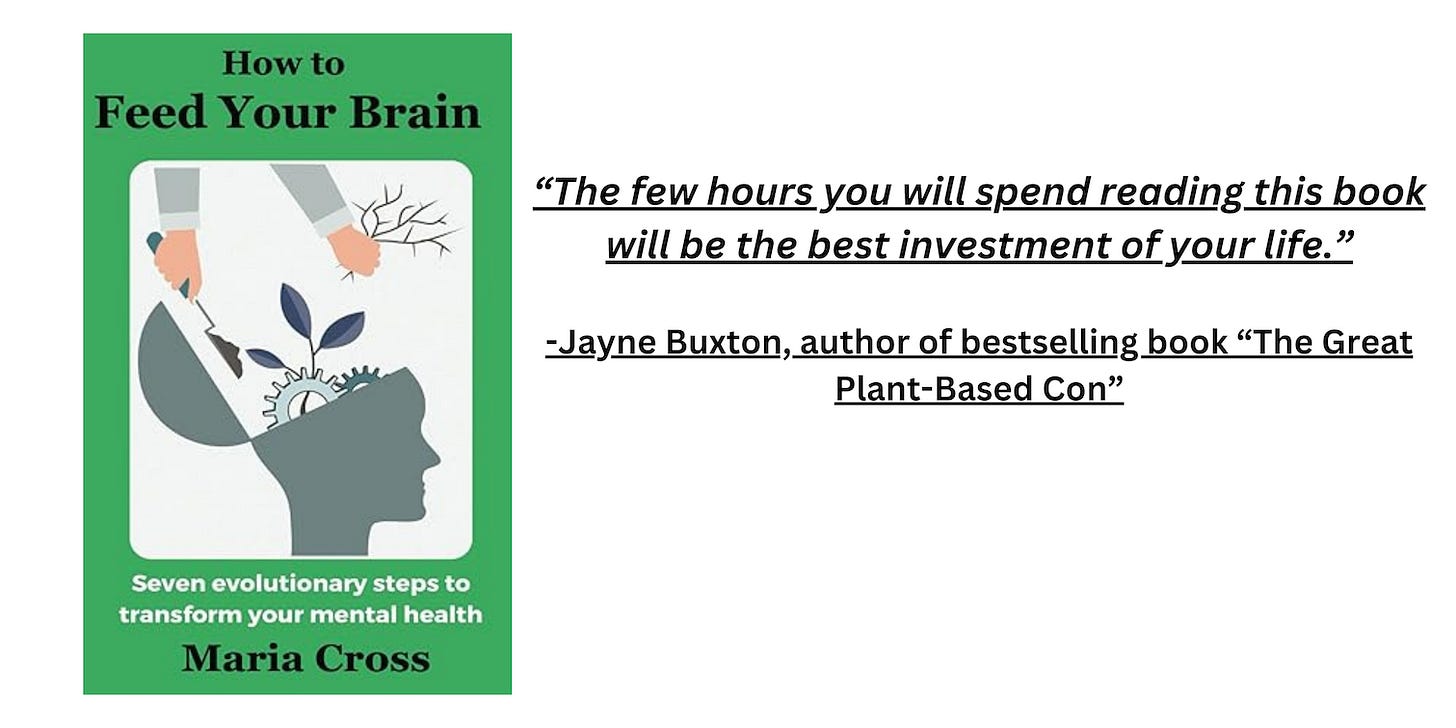Nutritional heresy no. 6: Ignore dietary guidelines
The official recommendations are neither fish nor fowl. Nor food.
I was having a pub lunch the other day and was greatly amused to see there was a vegan ‘fish’ and chips option. The fish part was a deep-fried battered banana, which at £17.99 – just a pound less than the real thing - suggests that plant-based diets definitely work for some.
The World Health Organization would approve. During the 2023 Climate Change Conference (COP28), the president of the WHO, Dr Tedros Adhanom Ghebreyesus, called for a transition to a plant-based diet, for the good of both human and environmental health.
The WHO has for several years made clear its position on meat. Red meat, especially processed red meat, causes cancer. The less you eat the better. Just like sugar. In 2024, the WHO stated that a diet high in sugars and simple carbohydrates is largely responsible for many chronic diseases, including type 2 diabetes, obesity, and metabolic syndrome.
And not let’s forget fat. The WHO’s position on this macronutrient is that excessive dietary fat is associated with obesity, heart disease and some cancers.
The WHO is the agency of the United Nations responsible for international health. It is surely the last word in dietary wisdom. Yet if we were to follow the advice of the WHO, there wouldn’t be much left on our plates. A few beans and salad leaves; perhaps some porridge.
Thankfully, the WHO does have a solution to this conundrum. It is keen to promote plant-based and cell cultured meat alternatives, the type of thing provided by innovative tech companies and their billionaire backers.
The WHO’s enthusiasm is undiminished by the lack of studies comparing the quality of these alternatives with the real thing. Nor by the ‘very limited scientific evidence supporting the idea that reducing red meat consumption leads to a decrease in the risk of suffering from cancer and CVD’.
But as it happens we do now have some research on meat alternatives. In August this year came a much-needed study that compared the nutrient profile of real meat and fish with plant-based alternatives.
These alternatives were products that featured the words burger, meatball, sausage, chicken, fish, shrimp, or crab in their names and were described as meatless or vegan.
The researchers found that the alternatives were greatly lacking in, well, everything, except for carbohydrate and salt. In fact salt was the most ubiquitous ingredient, with sodium levels ten times greater than those found in unprocessed meat and fish. Protein content was low, and the addition of the vitamins and minerals you might just hope for was ‘rare or non-existent.’ Vitamin D, vitamin B12, iron, zinc, selenium, iodine, omega-3 fatty acids… they were all minimal.
It’s all about priorities.
‘Much effort has gone into ensuring that plant-based burgers resemble the appearance, texture, and flavor of the original product, while less effort has been put into matching their nutritional profile’
You might expect there to be legislation in place for the formulation and labelling of these products, but there isn’t. You might also wonder why you would try to replicate something that is supposed to be so harmful. And you might also wonder why the WHO is keen to promote these sterile imitations.
Let’s think. The Bill & Melinda Gates Foundation contributes more than 88% of the total amount of money donated by philanthropic organisations to the WHO.
Bill Gates also invests in companies creating plant-based and lab-grown meat alternatives, including Beyond Meat, Impossible Foods and Upside Foods. He has even bought 275,000 acres of US farmland, making him the biggest private farmland owner in the States.
He has stated that ‘Rich nations should shift entirely to synthetic beef’ to help tackle the climate change crisis.
But even the better-for-the-environment argument disintegrates under scrutiny. In 2023 research revealed that the carbon emissions for each kilo of lab-grown meat produced was as much as 25 times higher than emissions produced by regular beef.
The ultra-processed, plant-based ‘meats’ are no better than lab-grown meat, being made with ‘relatively little interest in local, fresh, seasonal, minimally manipulated vegetables with proven nutritional and health benefits.’
There is a saying that half of everything taught in medical school is wrong. The problem is nobody knows which half.
At least half of what is taught on nutrition courses is also wrong. I’ve spent years working out and unlearning the wrong parts and learning the actual facts. The majority of advice given by government policy makers falls into the wrong half and it isn’t hard to work out why.
In theory, these guidelines are unbiased, impartial and evidence based. In reality, they are a morass of bias, partiality and powerful commercial interests.
The Scientific Advisory Committee on Nutrition (SACN) is a highly influential group of people whose job it is to advise the UK government on nutrition policymaking. Members ‘…have a duty to act in the public interest and to be independent and impartial.’
Yet more than half of the members receive payments from food giants. That’s the finding of an investigation by the British Medical Journal, published in September. This investigation found that of the 17 SACN advisers, at least 11 have links with companies that include Nestlé, Tate and Lyle, and Unilever.
Chris van Tulleken, author of Ultra-Processed People told the BMJ that ‘Despite two decades of work from a conflicted SACN there has been an explosion of suffering and death from diet-related disease in the UK so I don’t think it’s credible to claim that the committee has been very effective.’
This wasn’t the first time the BMJ has investigated the links with policy and business. In 2015 it published evidence of the ‘extraordinary extent to which key public health experts are involved with the sugar industry..’ That industry includes Coca-cola, PepsiCo, Nestlé, Kellogg Institute, Cereal Partners UK, Mars, and Unilver.
Fortunately for the whole of humanity, it’s just not working out for Bill and his ilk. An article last week in the Telegraph newspaper describes how the ‘alternative proteins bubble has burst.’
The whole process of making these substitutes is hugely expensive. Companies are scaling back, laying off staff or just packing up. And not just because of the expense. The eating public’s liking for ultra-processed food has its limits, it seems. Nobody wants the stuff.
‘It’s going to go down as one of the biggest failures in food history. Business schools will be presenting lessons on lab-grown meat,’ commented food consultant Julian Mellentin in the article.
I don’t know how the banana fake fish sales are going, but I suspect it’s in the same direction as lab meats. There will be more Big Ideas to follow, for sure, but when they finally run out let’s hope the WHO returns to promoting real food with real nutrition.






Your Nutritional Heresy series should be required reading in all medical schools. Bravo, Maria!
As usual, I would go further: I suggest the exact opposite of what the guidelines tell us to eat is our true proper human diet… fatty meat and eggs, with little to no plant matter. The current dietary guidelines are a joke. Built to protect the profits of Big Food and Big Pharma. Just let that last point sink in a bit… Big Pharma… what we are being told to eat is bolstering the profits of Big Pharma…. they *want* us sick and tired.